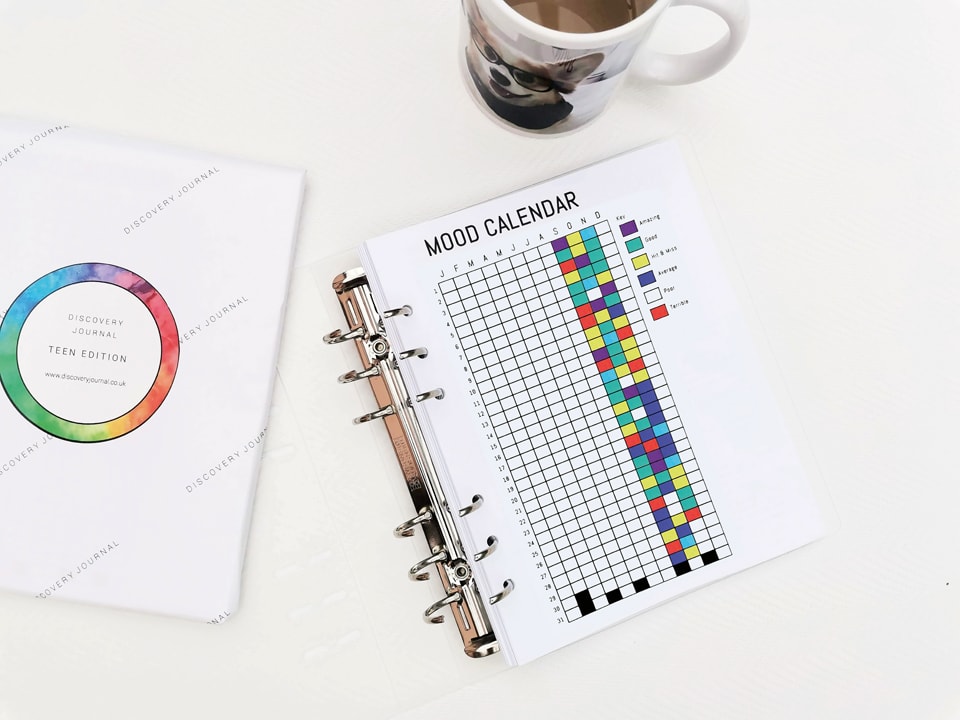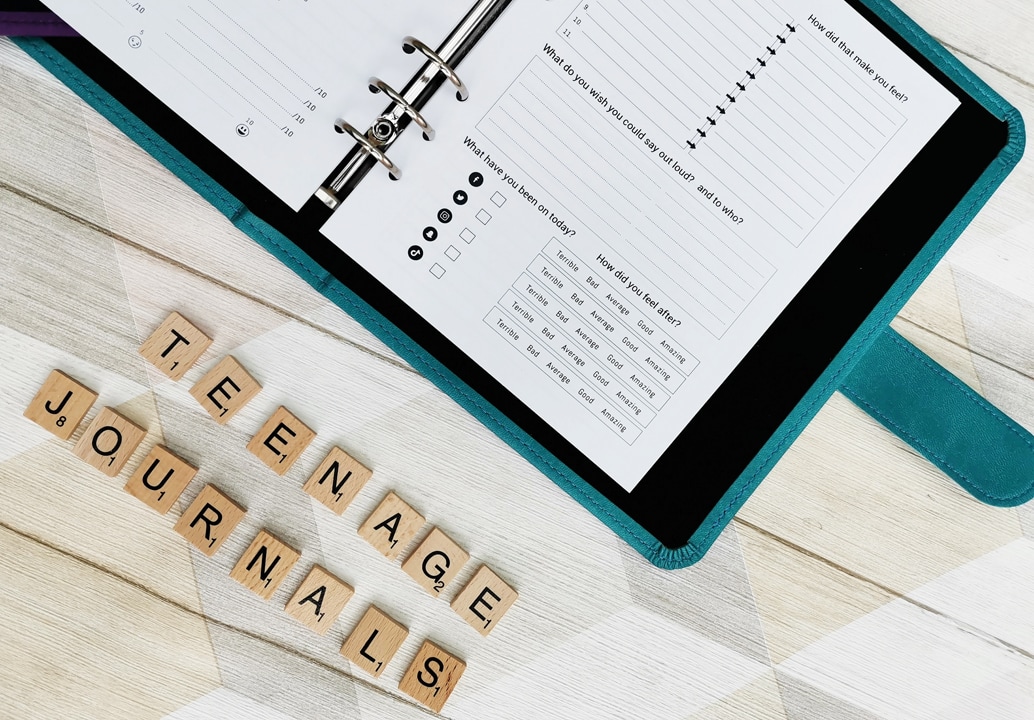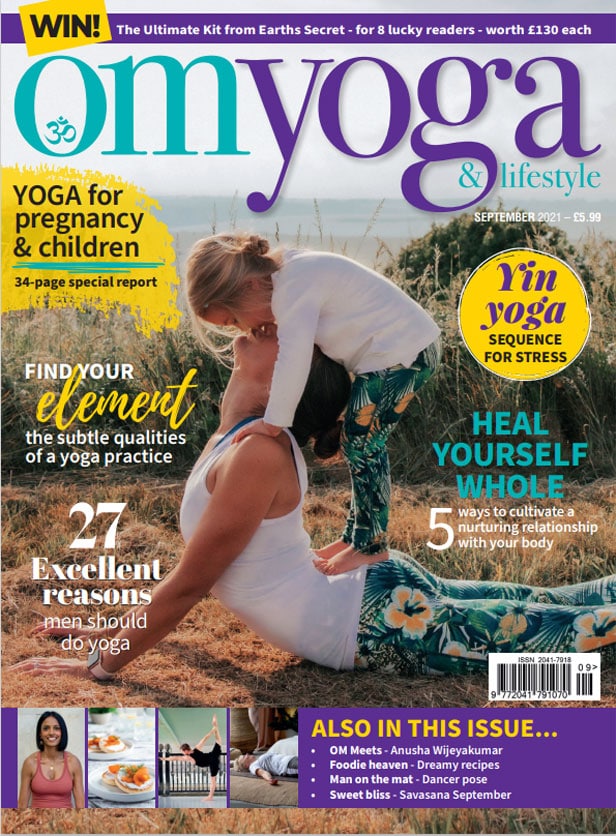
Teen journaling
4 reasons to encourage your teen to start journaling (plus, it’s good for you, too!). By Danielle Wathes
When I look back on my teenage years, the first thing I feel is nostalgia: thinking of how reckless and ‘free’ I was fills me with a sadness that I’ll never get that back.
But I think this is where I’m tripping up. The longer and harder I think on some of the experiences I had the more I coil up and realise how truly turbulent that period was.
There is a lack of direction and concentration and even though I felt I had freedom, was it really freedom? I had nothing of real importance to focus on, so I freely went around causing chaos and destruction, but internally I suffered with my mental health.
There is so much pressure during that period of life to be popular and liked; I spent most of those years changing my look, my personality and my behaviour to fit in, losing a sense of who I was in the process, which I found very difficult to claw back in later years.
I never kept a journal or practiced mindfulness, I did, however, visit counsellors and groups. But when your life is all about internalising it’s the most difficult time to express yourself to anyone other than yourself.
That’s where journaling can play a role. Here are four reasons to encourage your teen to give it a try:

Communication
Puberty is one of the most prominent life transitions we face. Communication and, more specifically, who we choose to speak to, becomes blurred and shifts. When we are younger, we look to our parents as a consistent presence in our lives. As we grow, we grow in confidence and awareness, meeting more people and having different experiences. Sometimes this can cause confusion in who we think can relate to us and who we trust to speak to. Anxiety can emerge in puberty (as it did for me) because the stress of these changes can be too great. We go through a period where we think nobody understands us and our emotions revert inwards. Using a journal allows you to have that sense of communication without having to speak to someone else. If you can get used to communicating in private to yourself, you are more likely to gain the confidence you need to speak out more openly.
Honesty
Being honest with ourselves is difficult regardless of age or experience.
We learn as we grow up the ‘do’s’ and ‘don’ts’ of our society and culture. However, we can get lost in this politeness and lose sense of what is truly ‘you’ and what is just ‘niceties’. Honesty slips away when we are teenagers, because we are too focused on fitting in and being liked. If we can start being honest with who we are and what makes us who we are at a younger age through a journal, it won’t come as such a shock when we are older. It can take a lot of mental strength to realise we aren’t ‘perfect’ and that that’s completely normal and okay. And it takes strength to overcome social pressures to be and act a certain way and the later we learn those lessons the harder it becomes. Journaling allows you to realise those ‘imperfections’ sooner and to come to terms with them.
Priorities
One thing I remember from being a teenager is that I truly believed that everything that happened to me or around me carried as much weight as the next. Everything was a massive ‘deal’ and attached was an incredible amount of pressure and urgency. Falling out with a friend was the end of the world and my personal life always took priority over my schoolwork, whether it should have done or not. A journal is designed to help you create a clearer picture of your day; it’s not about overthinking or over-indulgence, but just encouraging the user to take a step back and see the bigger picture. Putting it down on paper lets you look at your experiences and gain a better sense of priorities and what actually deserves your attention.
Routine & Structure
Journaling is all about helping to create structure out of chaos. It can be implemented into your life like any other thing you do every day, like brushing your teeth. If you find a journal enjoyable, it won’t feel like a chore, encouraging you to take a bit of time out every day and get the weight of the day off your shoulders and onto paper. This is a practice of mindfulness and self-awareness and becomes a bit of self-love every day. It’s also a nurturing habit. And if you start when you are young, writing every day, every other day, or even once a week, it leads to a routine, and one that you may well take it into adulthood.
Danielle Wathes is the founder of Discovery Journal (discoveryjournal.co.uk). Find her on Instagram @journaldiscovery





